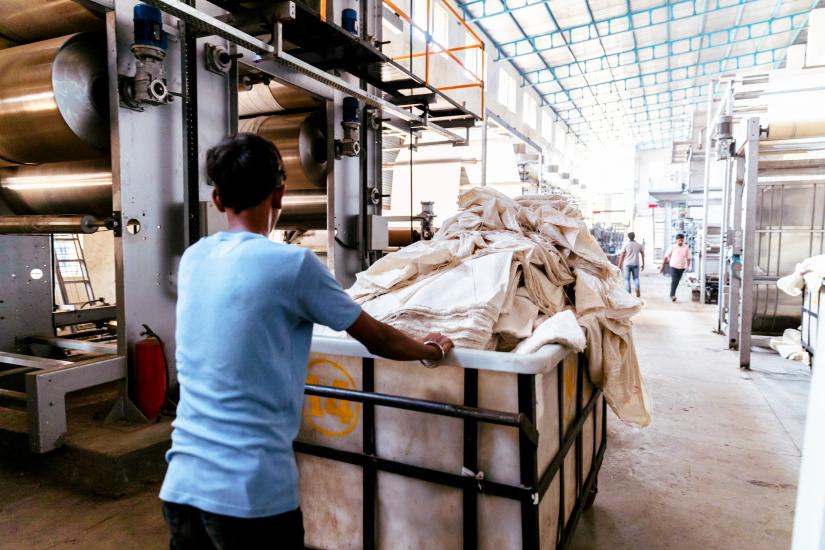This project aims to improve the environmental sustainability capacity of key actors in the textile and garment sector in Asia. The garment sector contributes serious negative environmental impacts including high levels of water utilisation, pollution from production processes, chemical use and inappropriate disposal mechanisms, and high greenhouse gas emissions associated with wet processing, and to a lesser extent transportation and garment assembly. The ability of the sector to address these issues is being further challenged by the effects of climate change and the COVID pandemic.
The project includes a mix of knowledge creation, diffusion and capacity building activities to develop an evidence base for how environmental sustainability, the transition to decarbonisation, and the adoption of more sustainable practices in the textile and garment supply chain enhances decent work in the sector.
The International Labour Organisation has a long-standing evidence base that supports interventions for industrial relations, gender and productivity – however, the same evidence base for environmental sustainability, and how this evidence is used in the creation of tools, programs and training, is still emerging. Our research seeks to identify the role of the International Labour Organisation in enhancing decent work and environmental sustainability in the sector in the context of a ‘just transition'.
Our work also investigates the impacts of transitioning to low-carbon and sustainable practices could have on employment and labour markets, including negative impacts on employees and enterprises. This research supports more effective transition planning to ensure new pathways are created and that no-one is left behind.
RESEARCH OUTPUTS
Greener clothes? Environmental initiatives and tools in the garment sector in Asia (2021) (Report)
Researchers
-
Associate Professor & Research Director
-
Research Director
-
Research Principal
Years
- 2019-2022
Client
- International Labour Organisation (ILO)







